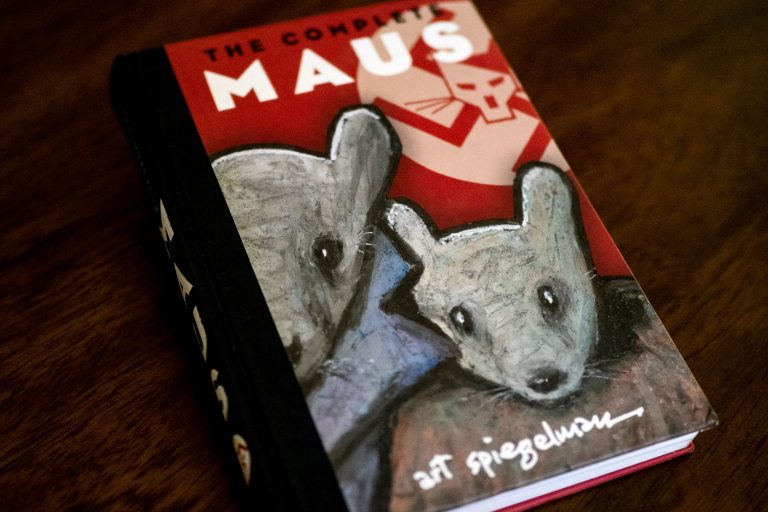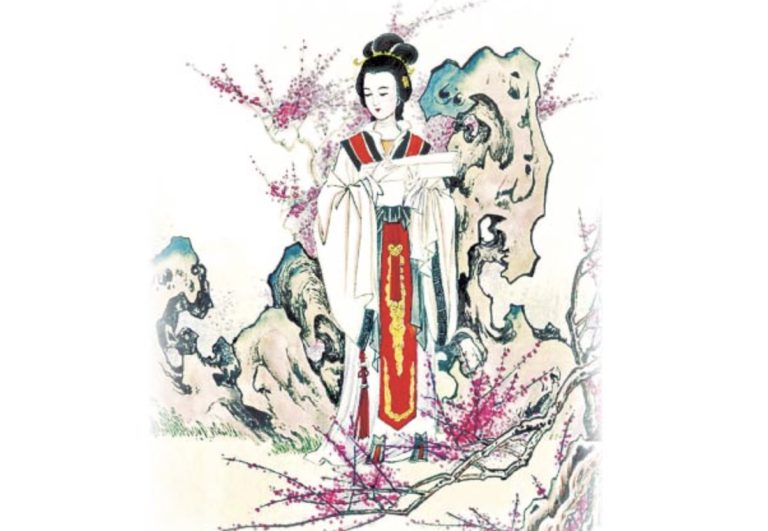A Jan. 10 vote by the McMinn County School Board in Tennessee to ban Maus, an acclaimed graphic novel depicting the Nazi genocide in World War II has stirred up controversy and accusations of racism.
Set in occupied Poland, the comic by Art Spiegelman depicts the real-life struggle of the author’s father as he and his wife do whatever they can to survive Hitler’s Holocaust of European Jewery. Maus, which is German for “mouse,” depicts the Jews as mice and Germans as cats.
The Board cited the use of profanity and depictions of nudity in the work as the reason for banning the book in school libraries, rather than its subject matter.
In some scenes of Maus, characters use curse words, and Spiegelman depicts Jewish prisoners stripped naked as they are searched and showered in the Nazi camps.
The graphic novel’s “unnecessary use of profanity and nudity and its depiction of violence and suicide” mean that “taken as a whole the board felt this work was simply too adult-oriented for use in our schools.”
Spiegelman’s father, Vladek, was a Polish Jew who, together with his first wife Anja, experienced the Nazi German invasion of their country, the sequestering of Jews into ghettos, pogroms organized by the occupiers, and finally the mass murder that took place in the Auschwitz-Birkenau death camp. Maus follows Art as he interviews his aging father, alternating between the present (1970s New York) and wartime Poland.
Success
You are now signed up for our newsletter
Success
Check your email to complete sign up
Anja committed suicide in 1968 after emigrating to the U.S. with her husband, a subject of much grief for Vladek and a recurring issue throughout the two-part book.

Maus was serialized between 1980 and 1991, and the following year won a Pulitzer Prize — the Special Award in Letters. It is the only graphic novel to date to win a Pulitzer.
After the ban, copies of Maus sold rapidly on Amazon and other retailers, reaching the top 10 ranks in graphic novels on Amazon. Due to the sudden demand hike, Amazon announced delays through February.
‘There is nothing pretty about the Holocaust’
Mainstream outlets were quick to paint the McMinn school board’s decision as veiled anti-semitism and fascist sentiment — CNBC felt it relevant to note that the county leans heavily Republican.
Comments by the McMinn board members and teachers in the schools themselves show differing interpretations of Spiegelman’s work and the importance of its stark depiction of the Holocaust — rather than a left-right feud.
While the school board members objected to the nudity, profanity, and dark themes in Maus, teachers and many netizens stressed the need to confront the Holocaust and its horrors directly.
“I was a history teacher and there is nothing pretty about the Holocaust and for me this was a great way to depict a horrific time in history,” said Julie Goodin, an Instructional Supervisor in McMinn, according to the full notes of the school board meeting.
“The problem is that we are 80 years removed from the Holocaust itself. I just think this is a grave starting point for our teachers. I am very passionate about history, and I would hate to rob our kids of this opportunity,” she continued.
School board member Tony Allman opined that Maus would be the same without its graphic depictions, asking “Why does the educational system promote this kind of stuff, it is not wise or healthy.”
“I am not denying it [the Holocaust] was horrible, brutal, and cruel. It’s like when you’re watching tv and a cuss word or nude scene comes on it would be the same movie without it. Well, this would be the same book without it…” Allman said.
Mike Cochran, another board member, said, “I went to school here thirteen years. I learned math, English, Reading and History. I never had a book with a naked picture in it, never had one with foul language.”
Melasawn Knights, a federal programs supervisor said that “I think any time you are teaching something from history, people did hang from trees, people did commit suicide and people were killed, over six million were murdered. I think the author is portraying that because it is a true story about his father that lived through that.”
Knights added that while staff were working on how to redact some objectionable language from the book, she and others felt that Maus’s depiction was valuable in helping “people who haven’t been in that aspect in time to actually relate to the horrors of it.”
Spigelman himself told CNBC that he was “baffled” by the school board’s decision to ban Maus, calling it an “Orwellian” act of censorship.
“I’ve met so many young people who … have learned things from my book,” Spiegelman said.












